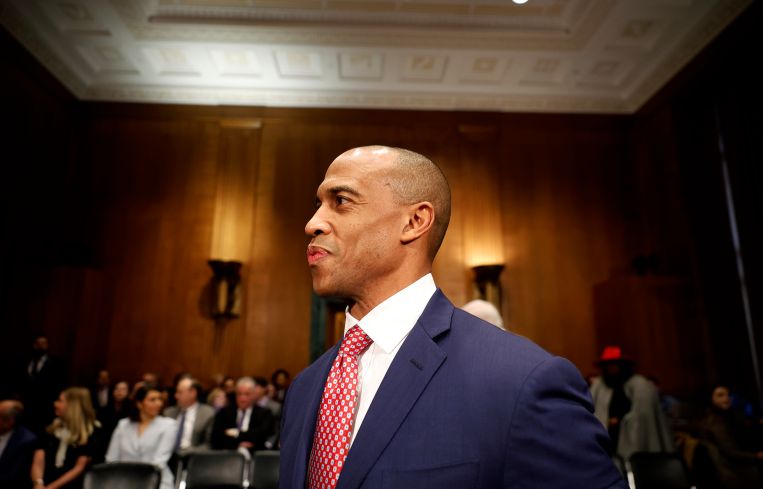HUD Moves to Cut Green MIP Program for FHA Multifamily Loans
By Andrew Coen June 24, 2025 5:31 pm
reprints
The U.S. Department of Housing and Urban Development (HUD) is eyeing an overhaul to requirements for Federal Housing Administration-backed multifamily loans in a bid to spur construction of more apartment projects.
HUD Secretary Scott Turner announced late Tuesday that the agency’s FHA program will propose streamlining annual mortgage insurance premiums (MIPs) to 25 basis points for all multifamily loans. FHA is also looking to eliminate what it calls an “ideologically motivated” green MIP program that has been reducing rates to 0.25 percent for properties earning certain National Green Building Standard certifications.
“By leveling MIPs and cutting cost-inflating regulations, we’re unlocking competitive financing and driving down costs across the board to spur development,” Turner said in a statement. “For too long, access to housing has been tied to obsolete, ideological mandates.”
A HUD employee who briefed a select group of reporters on a media call about the announcement said the Green MIP category has added costs to lenders and developers since it was implemented in 2016 and won’t be necessary if MIP rates are uniformly placed at 25 basis points. Reducing MIPs to 0.25 percent will equate to a reduction of 200 to 40 basis points for many FHA-backed loans, according to HUD.
The HUD proposals are slated to go into effect in late July following a 30-day comment period.
Commercial real estate lenders who are active in the HUD space gave early approval of the proposed changes.
“Moving to 0.25 percent MIP across the board and eliminating green compliance on existing HUD-insured assets retroactively was a monumental step toward making the program objectively more straightforward and less expensive,” said Josh Sasouness, co-founder and managing principal of Dwight Capital. “We rarely experience this much unequivocal enthusiasm from clients, brokers, and colleagues across the industry.”
“The MIP reduction will inevitably reinvigorate the HUD insured multifamily financing program,” said Aaron Krawitz, CEO of Bravo Capital. “It is now even more compelling for borrowers who were otherwise on the fence.”
Andrew Coen can be reached at acoen@commercialobserver.com



